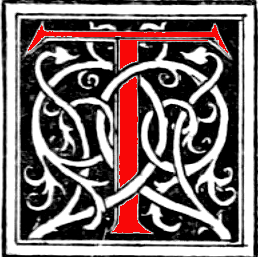
he 1889 novel Reuben Sachs by Amy Levy (1861–1889) concerns the crisis of Jewish assimilation into western society. The story offers anti- and philo-Semitic caricatures from late Victorian English life and presents the struggles between modernizing Jews and their more traditional co-religionists. The narrative is unusual in its presentation of a convert to Judaism. Bertie Lee-Harrison, the character in question, epitomizes of an upper-class imperial Englishman who exoticizes Jews so much that he can’t resist their allure. Just as Jews are outsiders in society, so is this would-be Jew to them. The proselyte first considered the decadent Scarlet Woman (the Victorian Protestant term for the tempting Roman Catholic Church), then what may be Sufism. Bertie Lee-Harrison has a seat in the West London (Reform) Synagogue where Levy’s family belonged. From Reuben’s perspective Lee-Harrison is the traveling (and colonizing) Englishman, but he is also the would-be aesthete: a seeker of new experiences in the transcendent and beautiful. Levy inverts the cultural discourse that has othered the Jew to exoticize the normative Englishman who has become one. He is ridiculed for his dilettantism, not taken seriously. As he breaks the fast with the Jewish family, he remains a comic figure, a foreign creature who cannot quite go native. Bertie is comfortable with the exoticized Jews as the other: the idea of the Jew — not the real, true, human Jews. The sheer ordinariness of praying after the meal distresses him. Levy writes the Jewish mercantile pitch for Judaism, even as the foolish English consumer chooses to buy. Although he is religious, racializing thinking dominates Bertie’s perspective for what may be his brief sojourn in Judaism.
While it is easy to see this characterization as satire on British misreadings of Jewishness, Levy’s text is specifically literary, alluding to the Biblical Judith and Queen Esther, and Daniel Deronda. Levy clearly addresses a Jewish audience who had critiqued George Eliot’s novel ad infinitum and would have appreciated inside jokes about the ridiculous character of Bertie. His devotion may seem absurd, but it begs the question of the reform of religious observance. As with prayer after the meal, what is or is not ridiculous? What rituals should be kept, reinvented, or thrown away? When Levy constructs the Jew-by-choice as other, she creates a vehicle for the interrogation of everything that modern Judaism was bringing into question.
Given how dramatic (and unusual) conversion to Judaism was in the nineteenth century, it is not surprising that Levy cast Bertie as a foolish outsider, a Jew among Jews, as it were. He is the quintessential stranger in a strange land, among people who were likewise. Despite the fact that Lee-Harrison formally converted, he remains a Gentile; even as Levy’s sometimes harsh words are spoken by a Jewish internal other to British culture. As the novel develops a love triangle between Bertie, Reuben, and Judith, the heroine turns to Bertie when Reuben favors ambition over love. Bertie is nothing if not a romantic, an idealist, even if he fails to understand deeply. Such is religious sentiment. Judith’s mother is upset when Bertie proposes marriage.
Because Bertie’s Jewishness is surface, not substance, he represents a growing phenomenon among Western European and American Jews at this time: the acceptance of so-called mixed marriages, that is, those in which one partner was not born Jewish; not to mention the accusations to many born Jews that their Reform practices were inauthentic Judaism. Although less controversial than intermarriages — only a few liberal rabbis marries a Gentile to a Jew — the discourses of race-versus-religion did not end with conversion even as Western liberal Judaism at the time favored religious to racial difference. The convert to Judaism lacked authentic credentials. Lee-Harrison was a model proselyte, fit for storytelling. Yet to have married even this convert to Judaism made Judith a stranger, a foreigner in her tribe. Meanwhile Reuben — one of her people, her love — dies of overwork after finally winning a seat in Parliament. Thus the novel ends tragically for Jews and their Jewesses.
Perhaps overcome by her own particularist struggles, the lesbian Levy committed suicide at the age of twenty-seven. Who knows in what ways she felt she was a foreigner; to what degree did she doubt her own authenticity — as a Jew, an Englishwoman, a woman, a writer?
Last modified 12 June 2018